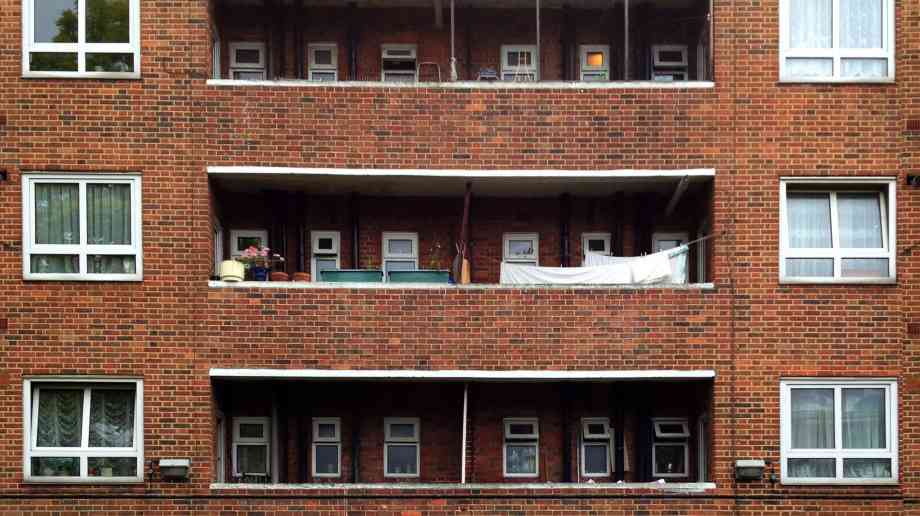Sue Robb of 4Children talks to Julie Laughton and Alison Britton from the Department for Education about the role of childminders in delivering the 30 hours free entitlement.
Social landlords required to report on residents’ satisfaction

Housing Secretary Robert Jenrick has revealed the government’s social housing white paper, making landlords more accountable for the services they deliver.
Announcing the paper, Jenrick said that the reforms will speed up the complaints procedure for residents by improving access to the Housing Ombudsman, reducing decision times and ensuring effective resolution. The Charter will also make landlords more accountable for the services they deliver, including access to a new information scheme for tenants of housing associations and introducing a set of tenant satisfaction measures that landlords will have to report against.
Shaped by the views of residents across England, it also includes a new Charter setting out what every social housing resident should expect from their landlord. This includes: to be safe in your home; to know how your landlord is performing, including on repairs, complaints and safety; to have your complaints dealt with promptly and fairly; to be treated with respect, backed by a strong consumer regulator and improved consumer standards for tenants; to have your voice heard by your landlord; to have a good quality home and neighbourhood to live in, with your landlord keeping your home in good repair; and to be supported to take your first step to ownership, so it is a ladder to other opportunities, should your circumstances allow.
Alongside publishing the white paper, the Housing Secretary also announced a consultation on mandating smoke and carbon monoxide alarms in all rental homes.
Jenrick said: “We are delivering on the commitment we made to the Grenfell community that, never again, would the voices of residents go unheard. This white paper will bring transformational change for social housing residents, giving them a much stronger voice and, in doing so, re-focusing the sector on its social mission.
“I want to see social housing tenants empowered by a regulatory regime and a culture of transparency, accountability, decency and service befitting of the best intentions and deep roots of social housing in this country. The new approach and regulatory changes we set out in this white paper will make a measurable difference to the lived experiences of those living in England’s 4 million social homes in the years ahead.”
Darren Rodwell, Local Government Association housing spokesperson, said: “Councils are proud of their housing and the individuals and families that call it home. It is paramount that the voice of all social housing residents is heard, and councils are committed to improving standards and empowering and supporting tenants. We support measures that will make the existing redress process clearer, equitable and accessible for all tenants, regardless of the tenure they are living in.
“Councils are also determined that their tenants should have the security of a safe and well-maintained home with any issues quickly and satisfactorily addressed. Tenants of all housing tenures should expect that their landlords will consistently work towards improving living conditions. Now is the time to reverse the decline in council housing over the past few decades. As important as these reforms are for tenants, they will not help to tackle the severe shortage of social housing the country faces.
“Every penny spent on building new social housing is an investment that has the potential to bring significant economic and social returns. We have set out how handing councils the powers and resources to build 100,000 social homes for rent each year would help to reduce spiralling council housing waiting lists and deliver a £14.5 billion boost to the economy.”
Company Focus
Just Lanyards is a subsidiary name of Gifts 2 Impress Limited, who have been trading for over 25 years, we therefore pride ourselves in having endless experience covering all aspects of the promotional merchandise industry.
Event Diary
UKREiiF has quickly become a must-attend in the industry calendar for Government departments and local authorities.
The multi-award-winning UK Construction Week (UKCW), is the UK’s biggest trade event for the built environment that connects the whole supply chain to be the catalyst for growth and positive change in the industry.
Supplier Profiles
Geo Energy
At GeoEnergy Design, we're on a mission to disrupt the traditional way heating and cooling ha
Latest Features
Professor Harith Alani, director of the Knowledge Management Institute at the Open University explains how AI can be used for good and bad.
Alex Lawrence, head of health & social care, techUK sets out techUK’s Five Point Plan for CareTech.

















